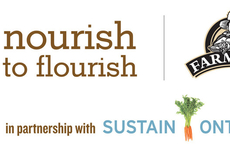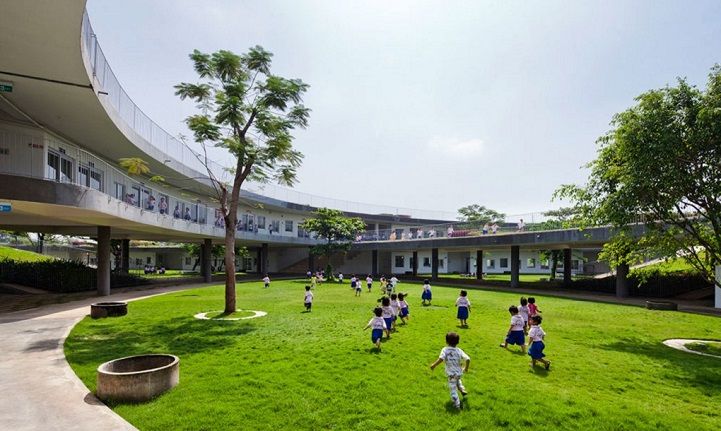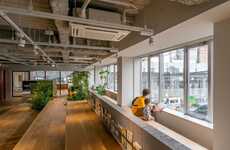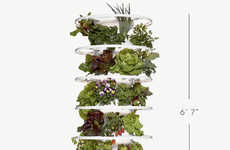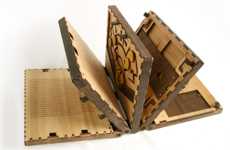
Vo Trong Nghia Educates Children on Growing Their Own Food
M — May 26, 2016 — Life-Stages
References: votrongnghia & mymodernmet
The Farming Kindergarten program is a service designed by Vo Trong Nghia that educates children at a young age about the importance of naturally grown food, sustainability and planting. The program is structured specifically for children of a young age, to educate them early on the benefits of food growth.
The program is offered through a contemporary classroom located in Vietnam that offers both indoor and outdoor program planning. The building's design reflects the sustainable course material with solar panels, eco-friendly bathrooms and structures composed of recycled materials. Children are taught inside as well as on an outdoor roof about planning in a setting where they can cultivate their own plants and watch them grow. The course can accommodate up to 500 students in total.
The program is offered through a contemporary classroom located in Vietnam that offers both indoor and outdoor program planning. The building's design reflects the sustainable course material with solar panels, eco-friendly bathrooms and structures composed of recycled materials. Children are taught inside as well as on an outdoor roof about planning in a setting where they can cultivate their own plants and watch them grow. The course can accommodate up to 500 students in total.
Trend Themes
1. Farming Kindergarten Programs - More schools and educational institutions are exploring effective ways to educate children about farming and sustainability.
2. Indoor/outdoor Learning Environments - The creation of indoor/outdoor learning environments is an innovative approach to early childhood education.
3. Eco-friendly Structures - The development of eco-friendly structures is a disrupting innovation opportunity in the architectural industry.
Industry Implications
1. Education - Education industry should explore new and innovative ways to teach children about sustainability and food growth.
2. Agriculture - Agricultural industry can collaborate with educational institutions to develop more educational programs that promote eco-friendly farming practices.
3. Architecture - The architecture industry can develop more eco-friendly structures for educational institutions that promote sustainability and reflect the values of the program.
2.4
Score
Popularity
Activity
Freshness


